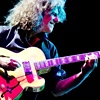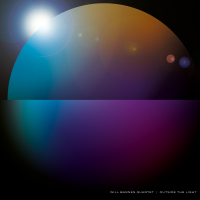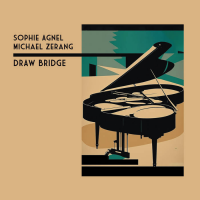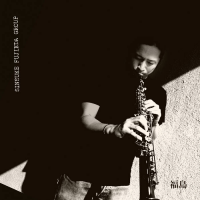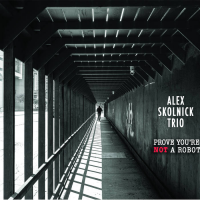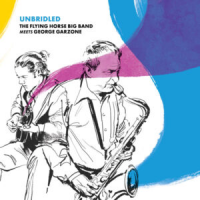Home » Jazz Articles » Album Review » Arvo Part: Musica Selecta: A Sequence by Manfred Eicher
Arvo Part: Musica Selecta: A Sequence by Manfred Eicher
While Eicher worked in the classical world prior to launching the label's New Series imprint with Pärt's Tabula Rasa in 1984— specifically, beyond being double bassist in a symphony orchestra before starting the label in 1969, his work with early minimalist trendsetter Steve Reich, whose Music for 18 Musicians (1978), Octet; Music for Large Ensemble; Violin Phase (1980) and Tehillim (1982) would later be reissued on CD within the New Series sphere—it was Pärt's early, innovative work that both captured Eicher's ear and drove him to reach out to the composer, beginning a musical partnership that has yielded a baker's dozen of exceptional recordings under the composer's name over the past three decades, and a further two that bring Pärt compositions together with the likes of Philip Glass, Peter Maxwell Davies, Wolfgang Amadeus Mozart, Werner Bärtschi and others whose music spans three centuries and only serves to demonstrate the sheer timelessness of Pärt's work.
There are others who have released recordings of Pärt's music, but none have benefitted from the composer's collaboration with a producer who stands out as a rare entity, actively involved in the artists' process of making music. Eicher also stands out as a producer with the rare gift of being able to sequence music in a way that makes a recording more than a collection of separate pieces; instead, Eicher's sequencing ensures that ECM recordings—whether for the more improv-centric regular series or form-based New Series—possess an arc that makes them best experienced as a whole: stories, then, with a most distinct beginning, middle and end.
It's a skill that was particularly on display when Eicher personally selected and sequenced music for a series of listening stations at Munich's Haus der Kunst, which curated the ECM: A Cultural Archeology exhibition and series of concerts that ran from November, 2012 through to early February, 2013, and was documented in a lavish and informative book by the same name, along with the six-disc Selected Signs III-VIII (ECM, 2014), which collected Eicher's playlists into a revelatory box set of music that drew connections between seemingly disparate musics that few but someone intimately involved in their creation would hear...but which become perfectly clear upon listening.
Celebrating Pärt's 80th birthday and three decades of shared collaboration , Musica Selecta: A Sequence by Manfred Eicher is a well-stocked two-CD set the brings together eighteen pieces from twelve recordings released under Pärt's name, along with one previously unreleased composition, all selected and sequenced by Eicher to be, as the producer says in suitably sparse liner notes, "heard and experienced in a sequence. Each episode offers an insight into our shared journey. Together they evoke new associations, as the journey goes on. From long ago thus singing... begins the Clemens Brentano poem whose setting by Arvo introduces my sequence on this album. Like Brentano's nightingale, the music continues to sing."
And sing the entire 140-minute program does, whether literally on tracks like the referenced opener, "Es sang vor langen Jahren," which features soprano Susan Bickley, sparsely but sublimely supported by violinist Gidon Kremer and violist Vladimir Mendelssohn and first heard on Arbos (1987), or on wholly instrumental pieces like "Festina Lente," from 1991's Miserere—which, like all of the music on Musica Selecta, is founded on Pärt's tintinnabulism, a self-developed and continually honed compositional technique rooted in (and can thus be considered as) minimalism, but which shares little of the strong pulses that so often defined minimalist works by Steve Reich, Philip Glass and Terry Riley.
Instead, tintinnabulism—initially inspired by chant music—is exquisitely meditative music largely predicated on slow tempi and typified by two voices: one, the tintinnabular voice, which arpeggiates the tonic triad; and the second, which moves diatonically in a stepwise motion. Pärt's early exploration of this technique reveals tintinnabulism perhaps most clearly on "Für Alina," first performed in Tallinn in 1976 but only released on Alina in 1999, where pianist Alexander Malter performs the piece twice, the two versions both bookended and separated by three versions of the similarly sparse "Spiegel im Spiegel," where the pianist is joined by clarinetist Vladimir Spivakov. Musica Selecta includes the first version of "Für Alina," a piece that almost defies possibility by starting out very quietly...and becoming even quieter as it develops, until there's barely anything left at all.
"Für Alina" perfectly exemplifies the description that Pärt's wife, Nora, has provided to explain the foundation of tintinnabulism, being "born from a deeply rooted desire for an extremely reduced sound world which could not be measured, as it were, in kilometres, or even metres, but only in millimetres....By the end the listening attention is utterly focused. At the point after the music has faded away it is particularly remarkable to hear your breath, your heartbeat, the lighting or the air conditioning system, for example."
Or the composer's own take, from his website:
"Tintinnabulation is an area I sometimes wander into when I am searching for answers—in my life, my music, my work. In my dark hours, I have the certain feeling that everything outside this one thing has no meaning. The complex and many-faceted only confuses me, and I must search for unity. What is it, this one thing, and how do I find my way to it? Traces of this perfect thing appear in many guises— and everything that is unimportant falls away. Tintinnabulation is like this ... The three notes of a triad are like bells. And that is why I call it tintinnabulation"—or, Pärt quoted in Hermann Conen's liners to Alina, translated into English by Eileen Walliser-Schwarzbart: "I could compare my music to white light which contains all colors. Only a prism can divide the colors and make them appear; this prism could be the spirit of the listener."
But it's not just the sparse instrumentation of Tabula Rasa's duet, "Fratres," performed by Kremer and Keith Jarrett—a pianist best known for his jazz and improvised work but also proving, over the course of a four-decade relationship with ECM and Eicher, completely comfortable in the classical sphere—that exemplifies Pärt's desire to create visual, prismatic music. Equally, Arbos' more overtly dramatic "Stabat Mater" traverses considerable territory in its 24 minutes, while still remaining true to Pärt's overarching concept. The longest piece selected for Musica Selecta, "Stabat Mater" also best demonstrates Eicher's astute ears. Featuring Hilliard Ensemble countertenor David James and tenor Rogers Covey-Crump, alongside soprano Lynne Dawson and the string trio of Kremer, Mendelssohn and cellist Thomas Demenga—all well-known and well-used instrumentalists and, in the case of the Hilliards, singers from across the New Series discography—it crosses a broad dynamic expanse, running the gamut from deep intensity and powerful voluminosity to calming quietude and near-silence. It leads, inevitably, to the elegiac album closer, "Da Pacem Domine," from 2009's In Principio, where Kaljuste conducts the Estonian Philharmonic Chamber Choir and Tallinn Chamber Orchestra with particular delicacy and empathic sensitivity to Pärt's written work.
The previously unreleased recording, "Most Holy Mother of God," is another spiritual text put to music by Pârt. Written in 2003 for and recorded in 2005 by the Hilliard Ensemble, it demonstrates how tintinnabulism can be easily adapted to a purely a cappella vocal context.
Musica Selecta draws together some of the most celestial music ever made on terra firma. While others have recorded Arvo Pärt's music, nobody—but nobody—"gets" Pärt as Manfred Eicher does, which is why ECM Records has been such a wonderful and perfect home for the composer...and why Musica Selecta is the ideal birthday present from Eicher—the master of sequencing music into whole new narratives—to Pärt, truly one of the most significant composers of the latter part of the 20th century and early decades of the 21st. This is one very special collection that demonstrates the deep mutual respect these two artists share...and why every new album from Pärt on ECM is to be eagerly anticipated. Musica Selecta: A Sequence by Manfred Eicher is, quite simply, music of profound spirituality and emotional depth in a world of such threat and crisis that it needs it now more than ever.
Track Listing
CD1: Es sang vor langen Jahren; Für Alina; Mein Weg; Känon Pokajanen Ode VI; Sikouans Song; Fratres; Alleluia-Tropus; Trisagion; Beatus Petronius. CD2: Wallfahrtslied / Pilgrim's Somg; Most Holy Mother of God; Cantus in Memory of Benjamin Britten; Magnificat; Festina Lente; Lamentate 1: Fragile; Lamentate 2: Pregando; Lamentate 3: Solitudino--stato d'animo; Stabat Mater; Da Pacem Domine.
Personnel
Susan Bickley: alto (CD1#1); Gidon Kremer: violin (CD1#1, CD1#6, CD2#9); Vladimir Mendelssohn: viola (CD1#1, CD2#9); Alexander Malter: piano (CD1#2); Tallinn Chamber Orchestra (CD1#3, CD1#5, CD2#10); Tōnu Kaljuste: conductor (CD1#3-CD1#7, CD1#9, CD2#1, CD2#4, CD2#10); Estonian Philharmonic Chamber Choir (CD1#4, CD2#4,CD2#10); Keith Jarrett: piano (CD1#6); Vox Clamentis (CD1#7) Sinfonietta Riga (CD1#7, CD1#9); Lithuanian Chamber Orchestra (CD1#8); Saulius Sondeckis: conductor (CD1#8); Latvian Radio Choir (CD1#9); Swedish Radio Symphony Orchestra (CD2#1); Swedish Radio Choir (CD2#1); The Hilliard Ensemble (David James, countertenor; Rogers Covey-Crump, tenor; Steven Harrald, tenor; Gordon Jones, baritone): voices (CD#2); Staatorchester Stuttgart (CD2#3); Dennis Russell Davies: conductor (CD2#3, CD2#5); Orchester der Beethovenhalle Bonn (CD2#5); Alexei Lubimov: piano (CD2#6-8); Stuttgart Radio Symphony Orchestra (CD2#6-8); Andrey Boreyko: conductor (CD2#6-8); Lynne Dawson: soprano (CD2#9); David James: countertenor (CD2#9); Robers Covey-Crump: tenor (CD2#9); Thomas Demenga: violoncello (CD2#9).
Album information
Title: Musica Selecta: A Sequence by Manfred Eicher | Year Released: 2015 | Record Label: ECM Records
Tags
PREVIOUS / NEXT
Support All About Jazz
 All About Jazz has been a pillar of jazz since 1995, championing it as an art form and, more importantly, supporting the musicians who make it. Our enduring commitment has made "AAJ" one of the most culturally important websites of its kind, read by hundreds of thousands of fans, musicians and industry figures every month.
All About Jazz has been a pillar of jazz since 1995, championing it as an art form and, more importantly, supporting the musicians who make it. Our enduring commitment has made "AAJ" one of the most culturally important websites of its kind, read by hundreds of thousands of fans, musicians and industry figures every month.



